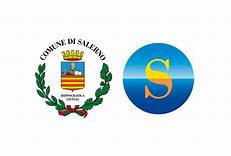How to Do Forensic Science Coursework
Coursework in jurisprudence has a number of features and difficulties. One of the most interesting and surprising subjects, specializations in this direction is criminology.
What it is?
Translated from the Latin "criminology" means "criminal, relating to a crime or counteraction." This science studies the patterns of offenses. With the help of special equipment, paperwriter and a number of methods, experts replenish the evidence base, establish specific facts of the crime, and collect evidence.
Criminalistics performs the following functions:
- It simplifies the process of understanding: how and why the offender committed this or that act, what tools or objects he used, etc.
- Collects materials on the case, replenishes the evidence base, helps to establish the circumstances and sequence of all actions, events, the involvement of individuals in the offense, whether a particular person was at the scene of the crime;
- It helps to predict, predict the actions of the criminal in the future: to whom he can go, what he wants to achieve, etc.
Features of the course work in criminology
It should be noted that forensic science is an applied type of science. Therefore, in the practical part, students of 2-3 courses can learn to perform specific actions by solving logical and other problems.
To do this, they will need knowledge of specific norms of criminal law, the code of administrative violations, etc. For example, during the seizure of evidence, witnesses must be present who will sign the relevant protocol or document. When performing coursework in forensic science, it is important to use relevant and reliable sources of information.
It is unacceptable to refer to outdated legal acts, to carry out investigative actions according to the “old order” or without observing the current rules. Criminalists adhere to specific principles, algorithms, which are enshrined at the legislative level. Therefore, when writing a term paper, it is necessary to double-check the accuracy and relevance of the data, the validity of legal documents, etc.
In the practical part, forensic students need to show how well they have studied the topic, and are ready to apply the acquired knowledge. To do this, paperwriter.pro/dissertation-writing-service are given a specific situation or task:
- analyze the situation and predict the actions of the offender;
- properly seize evidence;
- describe the procedure for conducting a specific examination;
- correctly draw up a protocol or other documents.
In senior courses, a specific picture of a crime can be created for students (for example, on the ground, in the classroom, etc.). The task of each of them will be to describe the actions or study the scene of the incident, based on the chosen topic.
Stages of course work in criminology
In the course of writing this written work, the student must demonstrate:
- ability to use literature, legislation and other sources of information;
- plan your actions, correctly carry out certain procedures;
- to formulate thoughts correctly and correctly, to substantiate a point of view.
Completing coursework in criminology with paperwriter.pro/thesis-writing-service help instills in students the skills to quickly solve problems, quickly find answers to questions, and shows the level of competence and professionalism. Writing a term paper in forensic science goes through the following steps.
More resources:
How to Write a Work Practice Diary?
Feedback on the Student Competition of Scientific Works
What Should the Supervisor's Review Contain?
Choice of Research Methods
Classification of Research Methods
